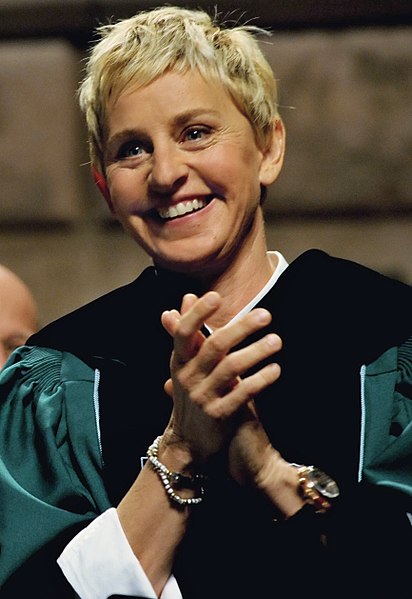Ellen missed the mark on her apology…again


Back in 2018, I read an article published by The New York Times titled “Ellen DeGeneres Is Not as Nice as You Think.”
The article documented a rare series of interviews with the comedic star. It seemed to highlight her subtly expressed personal aversion to the mantra of positivity associated with her since her daytime talk show began.
DeGeneres was presented in this piece as far more aloof than her on-air persona, and mentioned toying with the idea of retiring from her role as everyone’s good-natured host and afternoon buddy. This was a choice that her wife, Portia, also supported at the time.
Looking back now, she really should have listened to her wife’s advice.
DeGeneres has structured her estimated $330 million (according to Forbes) net worth around a show that encourages viewers to live by what she adamantly preaches with her signature “be kind” slogan and a career centered on her apparent unflappable niceness and quirky likability.
This sunny image of DeGeneres—the seemingly fun-loving, generous spirit who is known for once dancing with her audience, giving away extravagant gifts and playfully pranking her guests—was swiftly dismantled when Buzzfeed published an article that exposed an alleged toxic work environment behind the scenes of her show back in July.
Numerous former and current employees came forward and stated that they had experienced day-to-day instances of general toxicity, racism, microaggressions and sexually inappropriate behaviour from members of The Ellen DeGeneres Show staff.
These allegations rightly shifted a critical lens onto DeGeneres, with people sharing moments from her show that showcased a different and once overlooked side to her personality.
Dakota Johnson shot down DeGeneres when she accused Johnson of not inviting her to her Christmas party (even though she had). Also, DeGeneres pressured Mariah Carey into drinking a glass of champagne to prematurely confirm her pregnancy back in 2008, to name a few examples.
An investigation was launched by WarnerMedia following the ‘outpouring’ of accusations. Several producers accused of the misconduct were let go from their roles, and a personally-delivered Zoom-call apology from the host herself to her staff.
On Sept. 21, The Ellen DeGeneres Show kicked off its 18th season with an apology monologue from the program’s titular 62-year-old host. However, this merely stoked the fires of the intense dislike that has spread across social media since the claims against her were made public.
I used to be a casual fan of DeGeneres. I warmed up to her feel-good content when I’d see it shared on Facebook. I would leave her show on as background noise when I’d come home from school. Most importantly, I respected her as a prominent, female member of the LGBTQ+ community in the entertainment industry.
But there’s really no getting around it. Her “apology” needed a re-write. If she was aiming to convey genuine remorse about what her staff has gone through because of the work environment she is ultimately responsible for, then DeGeneres certainly missed the mark.
The majority of her spiel placed the focus on herself, in a professed attempt to humanize her actions (or lack thereof) and convince those watching that she really is as kind as she has presented herself to be on camera.
She phrased things in such a way that any sort of personal accountability was displaced and shifted. She looked like she was trying to be seen as a victim and not a contributor or instigator who was ultimately compliant in the harmful culture that was allegedly perpetuated on-set.
It cannot be easy to live with the intense scrutiny that accompanies fame and the role of being a celebrity. However, it is undeniable that a person like DeGeneres is shrouded in a cocoon of privilege and ignorance. She has become so far removed from what reality is for most, that it has warped her ability to relate to the audience she stands grinning in front of each week.
And that’s the problem with celebrity apologies for personal missteps and overall bad behaviour, though. Their public reparations rarely feel authentic or sincere, and often come off as an attempt to assuage their guilt and redirect the focus and blame onto someone else who is not them.
A line that stood out to me in The New York Times piece, “DeGeneres said her wife also had a note about this interview. ‘Portia said: Just remember, the nicer they are, the more they are going to screw you,’.
That’s the thing about building an entire career and public image on being Hollywood’s friendliest famous face. Once you’ve established a precedent, people are going to hold you to that standard and place you on a pedestal with that expectation — on and off camera — whether you like it or not.


